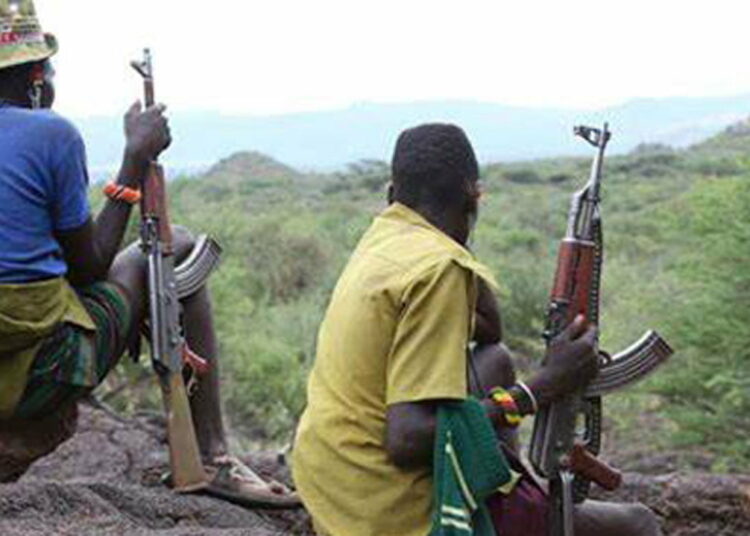In 2021, when the then Defence minister, Bashir Magashi, a retired major general, advised Nigerians to defend themselves against heavily armed terrorists, the public reaction was swift and severe. Many interpreted the advice as an admission of the government’s failure, essentially thrusting citizens into the frontline of the battle against insurgency. Fast forward to recent months, and this narrative has taken on a new dimension. In Northern parts of Nigeria, communities have indeed taken Magashi’s advice to heart, mobilising in the face of relentless violence from non-state actors.
Recent incidents in Matusgi, Talata Mafara, and Gobir vividly illustrate this shift. In Matusgi, residents, supported by local vigilantes and armed groups, managed to repel a bandit attack, resulting in the death of approximately 37 bandits. Similarly, in Gobir, thousands of residents engaged in a daring operation to rescue around 150 kidnapped individuals and recover the body of their deceased district head. These actions underscore a dramatic departure from traditional security practices, highlighting the resilience of local communities and the failure of the national security apparatus.
The events in Matusgi, where local defenders confronted and defeated a group of bandits, offer a compelling example of community mobilisation. According to reports, the bandits, who attempted to raid the community, were met with fierce resistance from locals and the state’s Community Protection Guard. The subsequent arrival of military forces further shifted the balance in favour of the defenders. While this outcome showcases the potential efficacy of community-led defence, it also raises critical questions about the role of the state in ensuring security.
Security experts have expressed both commendation and concern regarding these community-led efforts. On one hand, the proactive stance taken by these communities has been praised as a necessary response to a failing security framework. The fact that residents could organise and successfully repel attacks signifies a level of resilience and initiative that should be recognised. On the other hand, experts caution against the potential pitfalls of sidelining national security forces in favour of vigilante justice. While community defence can be effective, it must be coordinated with official security agencies to prevent escalation and avoid potential reprisals.
One expert highlights the severity of the security situation in Northern Nigeria, noting that the lack of adequate protection has led to a near state of anarchy in some regions. The current security arrangement, which disproportionately favours urban centres, is criticised for failing to address the needs of rural areas. There is a growing call for decentralising security forces to protect these underserved regions better. Such reform is essential for improving security sector governance and ensuring that all citizens, regardless of location, receive adequate protection.
As a newspaper, we would like to say that while community resistance is a positive development, it must not be a substitute for a comprehensive national security strategy. There is a pressing need for collaboration between local defenders and official security forces. Community members are urged to avoid aiding terrorists through acts of cooperation or the provision of resources. Effective community defence depends on a unified stance against threats and a refusal to support or condone terrorist activities.
Residents have voiced strong opinions on the government’s failure to provide adequate security. They argue that the government’s inability to protect its citizens has compelled them to take matters into their own hands. There is a call for the government to equip communities with the means to defend themselves, including locally- made weapons. This plea underscores a broader concern that citizens should not be left to bear the burden of security alone but should be supported by a responsive and accountable state apparatus.
The situation in Northern Nigeria is a stark reminder of the limitations of the current security framework. While the actions of local communities reflect their courage and determination, they also highlight significant gaps in the state’s ability to ensure security. The bravery displayed by residents in confronting bandits is commendable, but it should not be seen as a replacement for effective national security measures.
Former law enforcement officials and security advisors have echoed these sentiments, stressing the need for a balanced approach to community defence. While self-defence is legally permissible, it must be carried out within the bounds of the law to prevent abuse and unnecessary violence. The government is urged to enhance its security strategies, ensuring that communities do not face threats alone and that accountability is maintained for security failures.
We are persuaded to posit that the recent actions of residents in Matusgi and Gobir are a testament to their resilience and determination in the face of a failing security system. While community-led defence can be critical in safeguarding lives and property, it should not replace a robust and accountable national security framework. The Nigerian government must address the deficiencies in its security architecture to ensure that all citizens, irrespective of location, can rely on adequate protection. Security is a collective responsibility but must start with a robust and responsive state effort.





